By Jim Bishop for Let's Talk Plants! January 2023.

Getting There
This past October, on our return from a bicycling trip in Carolinas' Blue Ridge Mountains, we stopped in Arizona for a short stay at Castle Hot Springs hosted by Scott's brother and his wife. Heavy thundershowers that day in Phoenix delayed our flight arrival with an unplanned stop at the Las Vegas airport before arriving in Phoenix after midnight and 7 hours late.
The next day we drove to the springs located northwest of Phoenix. The last part of the road is unpaved and passed through lots of desert still damp from the heavy rains of the previous day.
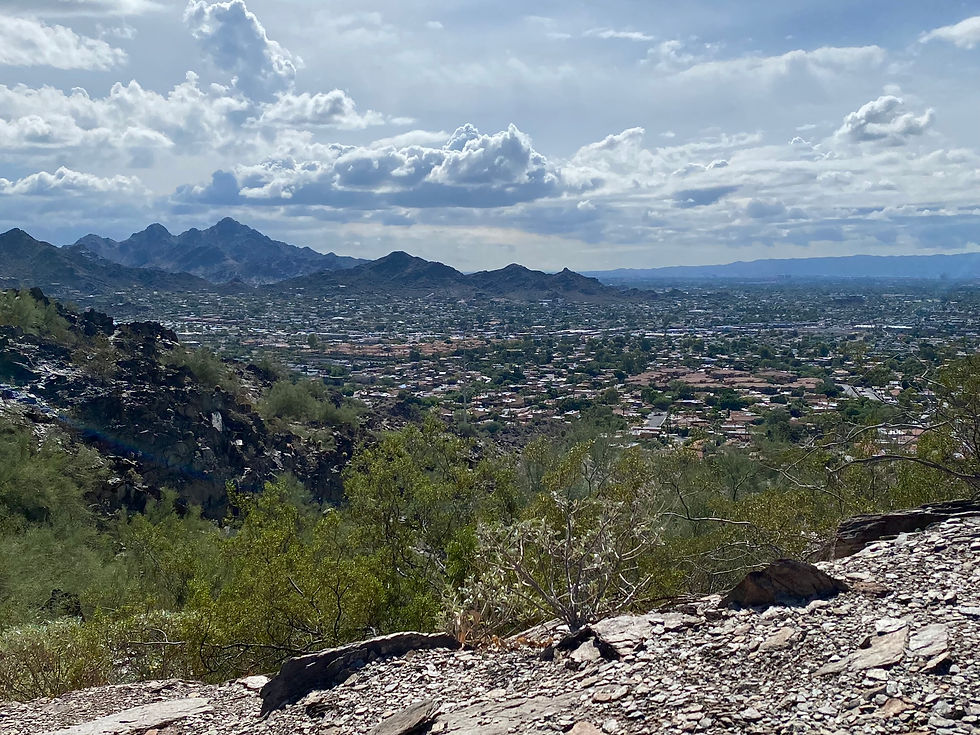



This is the Arizona Sonoran Desert - Saguaro country, Carnegiea gigantea. The Saguaro is the largest native cactus species growing in the United States and is found almost exclusively in the Sonoran Desert. They reach a height of forty feet and can live for 150 years. The ribbed trunk and arms expand to store large amounts of water when it is available. This lets them survive extended dry and drought periods and thrive in the intense summer heat. They have become increasingly threatened in recent years due to climate change and wildfires. The wildfires are a result of non-native grasses moving into their range.
Luckily, we were visiting in October and had very comfortable temperatures and dramatic clouds left over from the heavy rains.
Castle Hot Springs, located in the Bradshaw mountains, features thermal hot springs and was a popular destination long before the arrival of Europeans, but became increasingly popular during the prospect mining era. By the 1940s it had become a popular destination for the rich and famous. John F. Kennedy recuperated there from his injuries in WWII. However, the main building burned down in a 1976 fire and a second building burned in 1996 when most of the remaining buildings were torn down. Investment by new ownership in 2014 led to a renaissance and it reopened to guests in 2019.
The Grounds
The springs flow out of a large crack in the granite rocks below a saguaro forested hill. The springs feed several pools that cascade down a small valley with each pool being slightly cooler than the one above it. From there the water flow is diverted into several landscaped and palm-lined streams through the property before spilling to several large ponds at the bottom of the property.
Very modern, mid-century styled private casitas have been arranged alongside the flowing stream adorned with lots of desert landscaping and plants. Around a large pond at the end of the stream is a collection of slightly smaller bungalows.


The Vegetable Garden
Much of the produce used in the restaurant is grown on the property in a large garden and several greenhouses. We took a tour of the garden hosted by one of the main gardeners to learn more about what they grow and how they grow it.
Our Garden Tour Guide.



The springs specialty, hibiscus tea, made from onsite grown Hibiscus sabdariffa flowers.
The Springs
The hot springs, of course, are the main feature of the property. The upper pools were closed the day we arrived, being cleared of silt that had washed into them from the heavy thundershowers of the day before.

The next day after breakfast we walked up the path from the casitas to check them out. The top pool has several small waterfalls that feed into it with an average temperature of a very warm 106 degrees.









The third pool is the largest and suitable for swimming at around 86 degrees.

The Hikes
There are several hiking paths that lead into the surrounding desert hills.
Shortly after sunrise we did the 850-foot climb to the top of Salvation Peak across the valley from the resort. There were lots of native cacti and desert plants along the trail and even some club moss and ferns brought to life from the recent rains. At the top of the hill there were great views of the surrounding mountains and nearby, manmade, Lake Pleasant.

Here is a short video of the hike:
Just before sunset we took another short hike up the trail located next to our casita, the Chocolate Drop Trail. This trail also had some great cacti and rocks and good aerial views of the springs and resort grounds. We timed it right to catch some of the colorful sunset.

Here is a short video of the hike:
Castle Hot Springs is a relaxing escape from civilization with some great food, hiking trails and, of course, the hot springs.










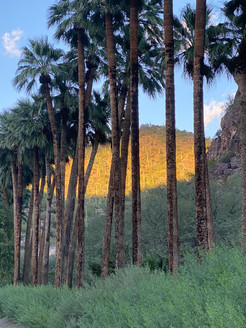





















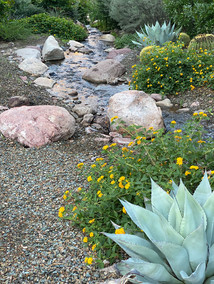





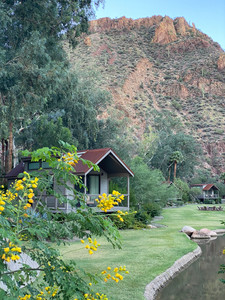















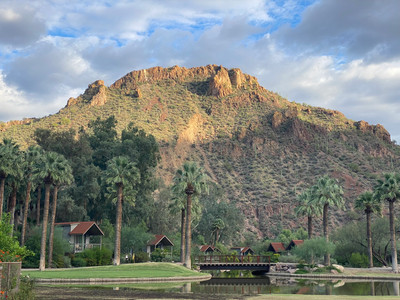







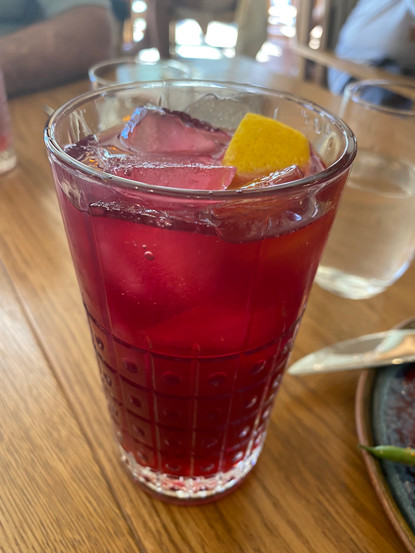













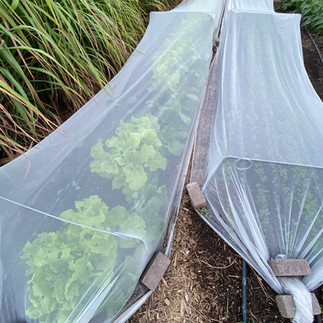


















Commentaires